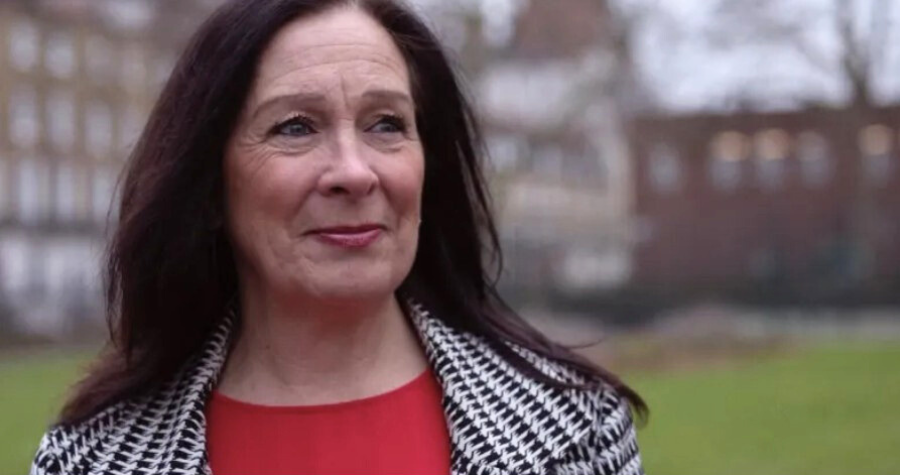
I’ve lived incredibly well with medication and with the knowledge that HIV won’t take my life as I thought it would, when I was first diagnosed back in 2005. At the time, there was a lot of misinformation, and I thought that HIV would be a death sentence.
I’ll never forget when I was diagnosed. It was completely life changing, not just for me, but for my family. Back then, especially in the heterosexual community, there were so many misconceptions. I never thought that as a “straight woman”, I’d be affected by HIV.
I had recently divorced, met a new partner, and felt like I had a fresh start at 47. About a year later we separated but stayed in touch. A few months on, he came to my door. He looked so different, he was thinner, paler, but when he smiled, I knew it was him. Over tea he told me he’d just been diagnosed with HIV. I remembered the terrifying campaigns from the 1980s, Freddie Mercury’s death in 1991, and I thought, ‘But that doesn’t happen to people like me’.
Before leaving he hugged me and said, ‘Please promise me you’ll go for a test’. That was the last time I saw him. Two weeks later, he died. Soon after, I got my own diagnosis. My first thoughts were of death, just like his. My family struggled too, saying, ‘But you’re not gay.’ I left a career I loved because of shame and self-stigma. I’ve learned HIV doesn’t happen to 'other people.' It can happen to anyone.
Joining Positive Voices
I began to pick up the pieces. Through my HIV consultants and nurses, I was connected to Terrence Higgins Trust. I’d never heard of them before. I remember going into the office in Brighton, feeling really anxious, which was unlike me. But I met amazing people. That’s where my journey started. I got the information about living with HIV and empowerment I needed. I joined Terrence Higgins Trust as a volunteer, and I learned I wasn’t alone, I wasn’t the only straight woman living with HIV.
By the end of my first year, I joined a project, back then it wasn’t even called Positive Voices, it was called the Positive Speakers Bureau. Someone said, ‘You’d be a good speaker’. I thought, why not talk about HIV?
I got connected to the project. It was a small group, I met four fabulous gay guys from Brighton. And I say that proudly because many of my friends and colleagues are from the LGBT+ community and they’ve been my confidence, my support, for years.
In those early days, speakers weren’t even going into schools. We’d sit around the office, sharing stories. I was one of the only women involved, and there was no funding, we were all volunteers. I’d taken time off work due to my diagnosis and started to get really involved.
I realised early on that sharing your voice can be powerful and educational. My first shadowing experience was with Michael, an amazing guy, who took his story into a school. He had the whole room of 200 boys captivated. I thought, I want to do what Michael does. He inspired me.
I watched it grow to where we are today
I feel so privileged to have been there at the beginning, to see it grow. In the early days, funding was year-to-year, and I was nearly made redundant annually. That first bit of funding from the MAC AIDS Foundation, changed everything. I still remember being in the supermarket when my manager phoned and said, ‘Sue, we’ve got the funding’. That piece of money launched us, and we grew year after year, becoming more integrated with Terrence Higgins Trust.
I always dreamed we could reach more places, but we didn’t have the money. Then COVID-19 hit. We pulled resources together, retrained speakers for online, and suddenly we could include people nationwide. That dream came true.
Now, we have two platforms for speakers to share their stories: online and in-person. Some speakers had to leave in the past due to financial reasons, but now we can cover costs, so no one isn’t left out of pocket. Businesses and organisations are literally at our door, asking us to speak. But we need help from our supporters so we can keep the programme going to help educate more people about HIV.
Milestones and memories
One of the most moving moments for me is watching new speakers complete training. Some have never spoken publicly before, and hearing them share for the first time is so powerful. Their vulnerability, their courage — it’s uplifting to see them blossom.
Over the twenty years, I’ve seen Positive Voices transform, from a handful of volunteers in Brighton to a national programme. We were pioneers, the first HIV charity to use personal storytelling for awareness and education. That legacy makes me proud.
Celebrating Positive Voices at 20 is why I’ve been reaching out to past speakers, to see where they are now and if they want to re-engage. It’s the perfect time to reflect on where we’ve come from, and where we’re going. My legacy includes those early experiences and a belief that we could grow, and we have.
Looking forward
Everyone living with HIV has a message. Trust yourself, and trust us to help you. What have you got to lose? It could change your life and connect you with the most amazing people who will stand beside you.
I’ve been on this journey for twenty years, and I’m still learning. Positive Voices isn’t just about education, it’s about empowerment, self-discovery, and creating a world where no one feels alone because of their HIV status. That’s why marking twenty years feels so special.

